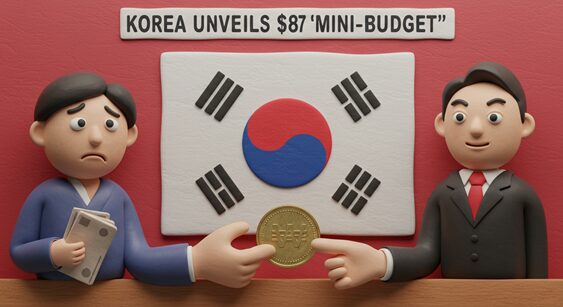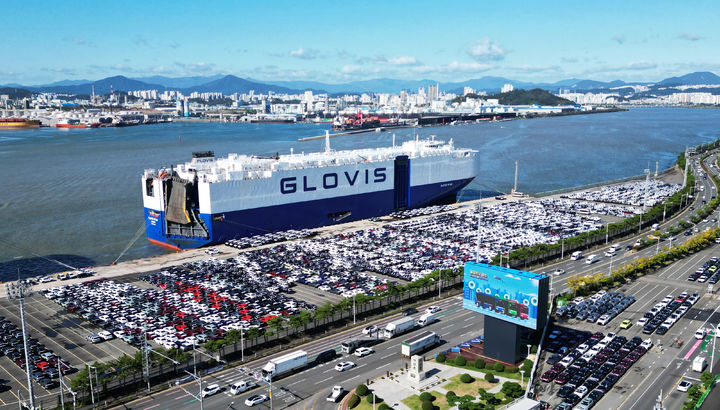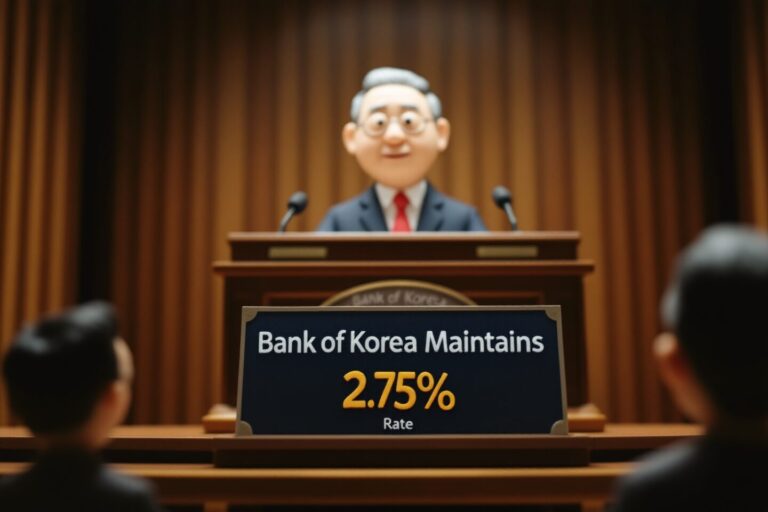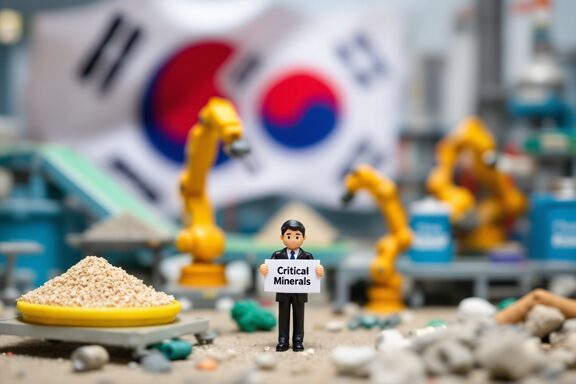Korea Unveils $8.7 Billion ‘Mini-Budget’: Critical Support or Political Move?
The South Korean government has announced its first supplementary budget in three years, totaling 12.2 trillion won ($8.7 billion) to address wildfire damage and trade risks. This unexpected fiscal injection comes as the country faces mounting economic pressures, but conspicuously lacks consumer spending stimulus measures. With a presidential transition approaching, critics question whether this budget represents genuine economic planning or merely political posturing.
Budget Breakdown: Where Will the Money Go?
The supplementary budget targets specific sectors with minimal focus on broad economic stimulus.
- The 12.2 trillion won ($8.7 billion) package is expected to boost GDP by only 0.1 percentage points
- Disaster response receives 3.2 trillion won ($2.3 billion), including 1.2 trillion won for wildfire recovery
- Trade risk countermeasures and AI competitiveness are allocated 4.4 trillion won ($3.1 billion)
- Livelihood support measures account for 4.3 trillion won ($3.1 billion)
Disaster Recovery Takes Priority
The government is allocating substantial funds to address recent wildfire damage and enhance future response capabilities.
- 1.2 trillion won ($857 million) specifically earmarked for wildfire recovery efforts
- Plans include providing 1,000 new rental housing units for displaced residents at a cost of 200 billion won ($143 million)
- Six new forest firefighting helicopters will be procured to strengthen future disaster response
Trade Risk Mitigation Strategy
With global trade tensions rising, Korea is bolstering its economic defenses and resource security.
- Special financial support funds will be expanded by 25 trillion won ($17.9 billion)
- Export voucher support quantities will be increased to help businesses maintain international competitiveness
- 200 billion won ($143 million) allocated for early stockpiling of six critical minerals including rare earth elements
Small Business and Consumer Support
The budget provides targeted relief for small business owners but falls short of broader stimulus measures.
- 2.6 trillion won ($1.9 billion) designated for small business support
- Consumer discount programs offering up to 300,000 won ($214) in credit card spending rebates
- Public delivery app discount events providing 10,000 won ($7.14) discounts
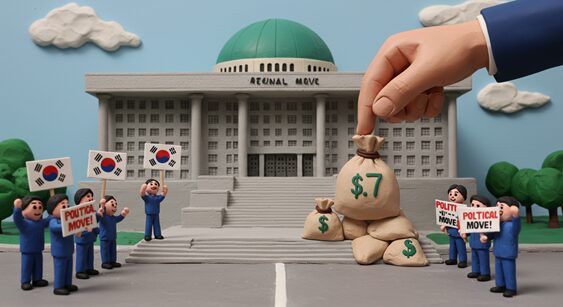
The government’s cautious approach to this supplementary budget reflects broader economic uncertainty. While addressing immediate needs like disaster recovery and trade risks, the limited scope suggests fiscal conservatism ahead of the upcoming political transition. Will this measured response be sufficient to address Korea’s economic challenges, or is this merely the first step in a larger fiscal strategy?
Keywords
Supplementary budget, South Korea economy, trade risks, disaster recovery
Hashtags
#KoreaBudget #EconomicPolicy #TradeDefense
한국어 요약
- 정부가 12조2천억 원 규모의 추가경정예산을 발표, 팬데믹 이후 3년 만에 첫 추경
- 산불 피해 복구(3.2조원), 통상 리스크 대응(4.4조원), 민생 지원(4.3조원)이 주요 항목
- GDP 성장률은 약 0.1%포인트 상승 예상, 내수 진작 위한 큰 규모 예산은 포함되지 않음
- 전문가들은 새 정부 출범 앞둔 ‘면피용’ 추경이라는 비판과 함께 경기 진작을 위한 추가 예산 필요성 강조
